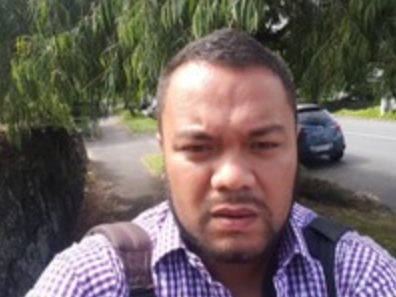Outcome monitoring and evaluation associates
NZ & Pacific Region: Outcome Monitoring Design
Elaine Wright is a senior biodiversity monitoring and policy leader who developed New Zealand's national biodiversity monitoring framework as Technical Lead for the Department of Conservation. She designed comprehensive programmes enhanced to include iwi-led case studies under Te Mana o te Taiao.
As New Zealand's IPBES focal point (2019-2024), Elaine facilitated policy developments and provided technical feedback on assessments. Her international expertise includes research on biodiversity indicators with published peer-reviewed work and contributions to Pacific region initiatives and IUCN workshops.
NZ & Pacific Region: Pest Management, Biodiversity & Biosecurity
Kevin Collins has a Master of Environmental Science and Policy from Johns Hopkins and was an environmental journalist and lobbyist in Washington, DC, before moving to New Zealand.
He's worked extensively across biosecurity and biodiversity programmes, chairing the Data Collaborative Group of Predator Free 2050 and developing "Future of Pest Management" proposals incorporated into national policy. As knowledge broker for the Biological Heritage National Science Challenge, Kevin connected researchers and stakeholders to facilitate knowledge transfer. His core competencies include workshop facilitation, qualitative research, advocacy, and communications.
NZ & Pacific Region: Cultural lead Matai’a Fritz Evile
Matai'a Fritz Evile is a former Pacific Executive Leader who now leads Oceanic Wayfarer, a consultancy navigating systems change with cultural precision. Grounded in his Pasifika worldview and ali'i chiefly title from Sato'alepai, Savai'i, he is a strategist, evaluator, and storyteller blending data and narrative.
His work spans coaching, evaluation, outcomes frameworks, and community engagement across grassroots movements to government forums. As a Mangere-raised son of Sāmoa, Tuvalu, and Denmark, Matai'a builds vessels that move institutions from intention to impact.
Pacific region only: Monitoring Systems and Implementation
Meredith McKay is a senior environmental monitoring leader with over 20 years' experience delivering national-scale biodiversity systems. As Manager of Environmental Monitoring at Environment Canterbury, she leads integrated hydrological, freshwater, and ecological monitoring to support climate resilience and planning.
She serves as New Zealand's Head of Delegation to the Global Biodiversity Information Facility (GBIF), contributing to international governance and data policy. Previously, she led DOC's Tier 1 Biodiversity Monitoring Programme. Her expertise lies in systems thinking and translating science-policy interfaces into enduring partnerships.




